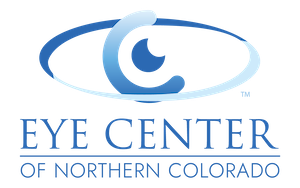06 Oct Weighing Your IOL Options
As mentioned in our previous blog post, intraocular lenses (IOLs) are small devices used to replace the eye’s natural lens during cataract surgery. Dr. Gary Foster, who practices in Fort Collins, Colorado, offers several types of intraocular lenses, each with unique features. If you are facing cataract surgery and do not know which IOL to choose, the information in this post may prove helpful. Dr. Foster can also explain your options in person during a consultation.
Toric IOLs
Great for individuals that have astigmatism and want clear vision at a single distance.
Toric lenses, which restore clear vision at a single distance, have built-in astigmatism correction. Astigmatism is a refractive error caused by an abnormality in your eye’s shape (it is more oval than round), and leads to blurry or distorted vision. The FDA has approved four types of toric lenses: AcrySof Toric, Tecnis Toric, enVista Toric, and the Trulign Crystalens.
Crystalens IOLs
Great for individuals that have astigmatism, want distance and intermediate vision and are open to wearing reading glasses for near vision.
Crystalens is known as an “accommodating” lens, meaning it works with the eye’s natural muscles to flex and focus on objects at different distances. The greater the flex, the better the patient can see objects up close. Most of Dr. Foster’s Crystalens patients achieve clear distant and intermediate vision (and need reading glasses to see clearly), and about half can achieve clear vision at all distances, including near.
ReStor IOLs
Great for individuals that want complete freedom from glasses after cataract surgery.
ReStor lenses are designed to improve vision far away, up close and all distances in between, thanks to a series of rings that focus light at different distances. ReStor lenses provide the best chance for freedom from glasses. ReStor lenses also have special features to reduce visual disturbances, such as halos around lights at night, and improve image quality for enhanced visual clarity.
Choosing Your IOL
Dr. Foster has worked with each of these IOLs for a very long time. In fact, he even participated in FDA trials for many of them, so he is extremely knowledgeable about their advantages and drawbacks. After learning more about your lifestyle, health of your eyes, visual needs and goals of treatment, he can outline your options and help you select the most appropriate one.
If you would like to discuss your IOL options in person with Dr. Foster, please contact our practice and schedule a consultation today. You can reach us by calling (970) 419-2693 or by sending an email.


No Comments